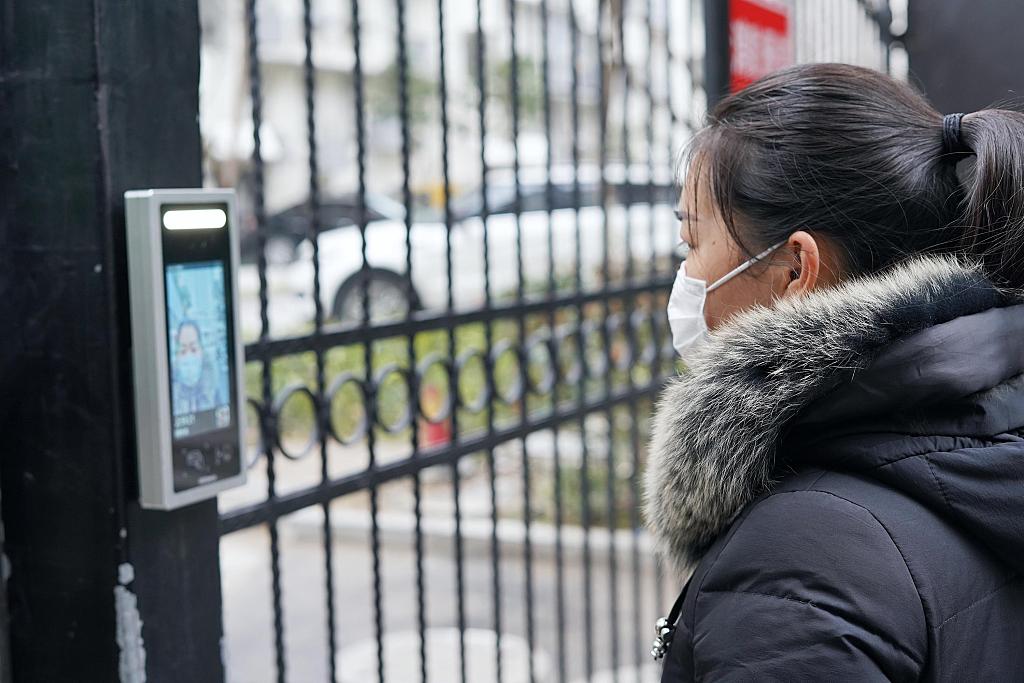A court in Hangzhou, capital of east China's Zhejiang Province on Friday found in favor of the plaintiff, Guo Bing, in China's first facial recognition lawsuit.
Guo, an associate law professor at Zhejiang Sci-tech University, bought an annual pass to Hangzhou Safari Park for 1,360 yuan ($207) in April 2019. He used fingerprint recognition to enter the park before and had no problems with the technology. But in October last year, he received a message saying visitors needed to use the park's facial recognition system for admission.
Guo refused and then took the park to court, saying, "It was violating protection laws by collecting visitors' facial characteristics."

A Hangzhou Safari Park notice requires that visitors need to activate their annual passes through facial recognition, and they need to show the annual pass and through facial recognition before entering the park. /bjnews.com.cn
A Hangzhou Safari Park notice requires that visitors need to activate their annual passes through facial recognition, and they need to show the annual pass and through facial recognition before entering the park. /bjnews.com.cn
The court ruled that Hangzhou Safari Park's use of facial recognition technology was "unnecessary and lacked legitimacy." It said the wildlife park should compensate Guo for his losses and transportation expenses totaling 1,038 yuan and delete the facial features on his personal information, including photos Guo submitted when he applied for the annual pass.
It's the first court case involving facial recognition in China, and concerns have since risen on Chinese social media. Some said they fear such technology would pose risks in the future.

Children and their parents watch leopards at Hangzhou Safari Park in Hangzhou City, east China's Zhejiang Province, April 25, 2020. /CFP
Children and their parents watch leopards at Hangzhou Safari Park in Hangzhou City, east China's Zhejiang Province, April 25, 2020. /CFP
"The application of commercialized and facial recognition technology is very common, especially after the coronavirus pandemic. There may be more use of it. I think if there are too many commercial applications of facial recognition, it poses dangers to the applicant's personal information, with leaking of such information as the biggest risk," Guo told CGTN.

A resident uses facial recognition technology to enter her community in Hangzhou City, east China's Zhejiang Province, March 3, 2020. /CFP
A resident uses facial recognition technology to enter her community in Hangzhou City, east China's Zhejiang Province, March 3, 2020. /CFP
Facial recognition has been in China for several years now, originally as a means of boosting security but now as a means of bringing consumer convenience to people's lives, such as paying bills, accessing cell phones, and more. But there is currently no law in China to rule the use of biometric data, such as facial images or fingerprints.
Hangzhou published a draft plan to ban facial recognition technology in residential areas last month. The draft law has now been submitted to the local legislative department, and a public opinion solicitation has begun.
The revised draft of municipal property management regulations stipulates that property management companies are not allowed to demand that residents submit to facial and other biometric scans when entering residential compounds.
If the draft is passed, it will be the first local law in China to ban the use of facial recognition technology in residential areas.
(Cover image via CFP)
Read more:
Facial recognition in the spotlight: Hangzhou targets partial ban

